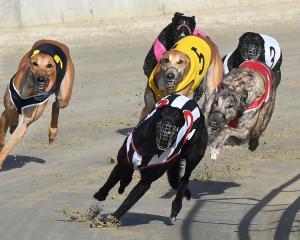The murder conviction of a woman who crashed her car while her former partner clung to the bonnet was today appealed on the grounds an argument of self defence was not put before the jury.
Cindy Fairburn was last year sentenced to life in prison with a non-parole period of 10 years following a trial at the High Court at New Plymouth.
On the night of August 6, 2007, she had been behind the wheel of a car while her former partner Darin Maxwell, 42, clung to the bonnet for some 13km between Inglewood and New Plymouth, until the car swerved into the path of a four-wheel-drive.
Fairburn's lawyer, Susan Hughes QC, today told the Court of Appeal in Wellington the question of self defence had been raised somewhat informally during the trial, but Justice Rhys Harrison had indicated he would oppose its inclusion.
Court of Appeal Justice Grant Hammond said it would have been better to formally raise the matter to have it on record.
Ms Hughes acknowledged this and said if it were a sticking point for the appeal it could open a defence of incompetent representation on that matter.
Supporting her argument for self defence, Ms Hughes said the judge, and therefore jury, had focused on the last few seconds of Fairburn's driving.
She said the question of whether Fairburn had intended to kill Mr Maxwell should have been considered from the moment he threw himself on the bonnet and she pulled out of a pub carpark.
Fairburn had confronted Mr Maxwell at the pub because she suspected he had molested their two-year-old daughter.
Ms Hughes said Fairburn had panicked and driven off, flashing her lights in hope of attracting attention.
She said whether Fairburn, who reached speeds of up to 120kmh, had acted in a manner disproportionate to any threat should have been put to the jury.
"If (Fairburn) had intended to kill him, she had plenty of opportunity to do so (by slamming on the brakes)," Ms Hughes said.
Crown lawyer Timothy Brewer said the argument of self defence was meant to be used in cases where a deliberate course of action was taken in response to a threat.
He said the defence team had claimed during the trial that the crash was an accident due to a number of factors such as the weather, darkness, Fairburn's state of mind and obscured vision.
Ms Hughes also contested the Crown's summing up which she said introduced new evidence in stating Fairburn had straightened up before hitting the 4WD.
Mr Brewer said that had been a logical inference given evidence heard on the angle of the crash, but would not have altered the jury's decision which was not based on physical evidence so much as the pair's background and issues of motive and intent.
The court reserved its decision.












